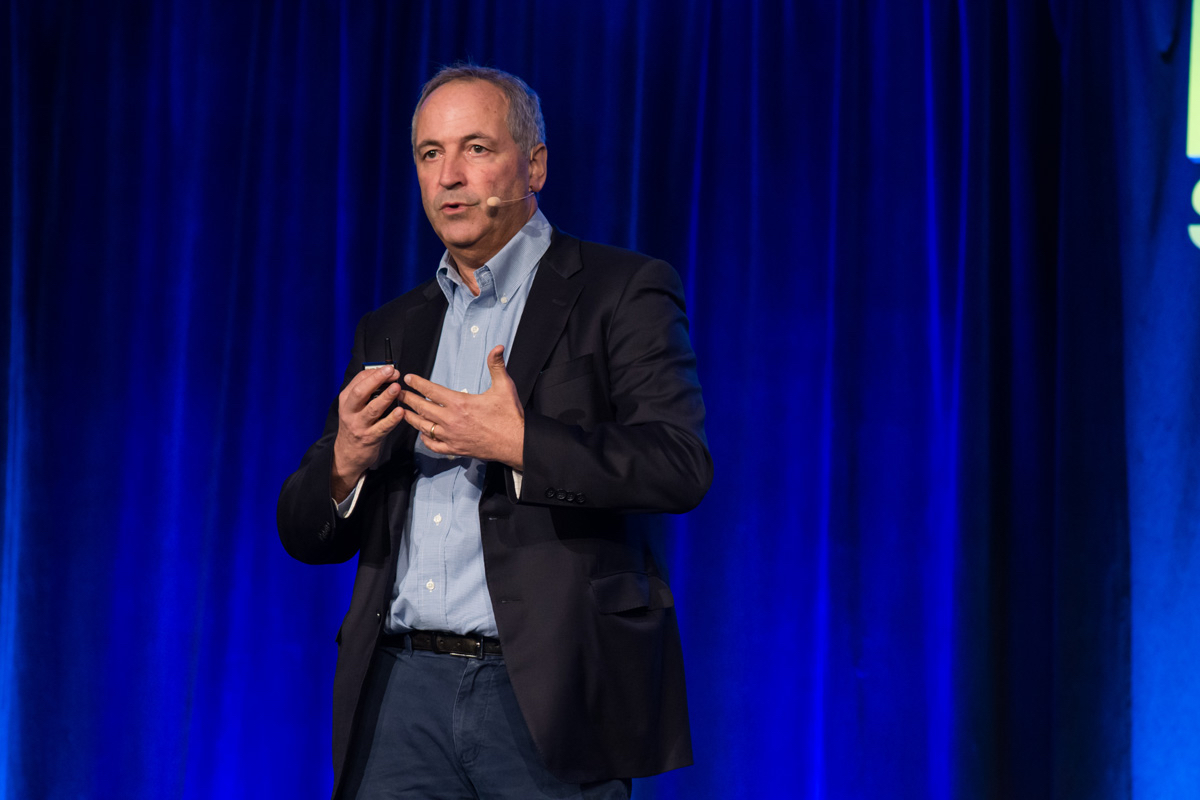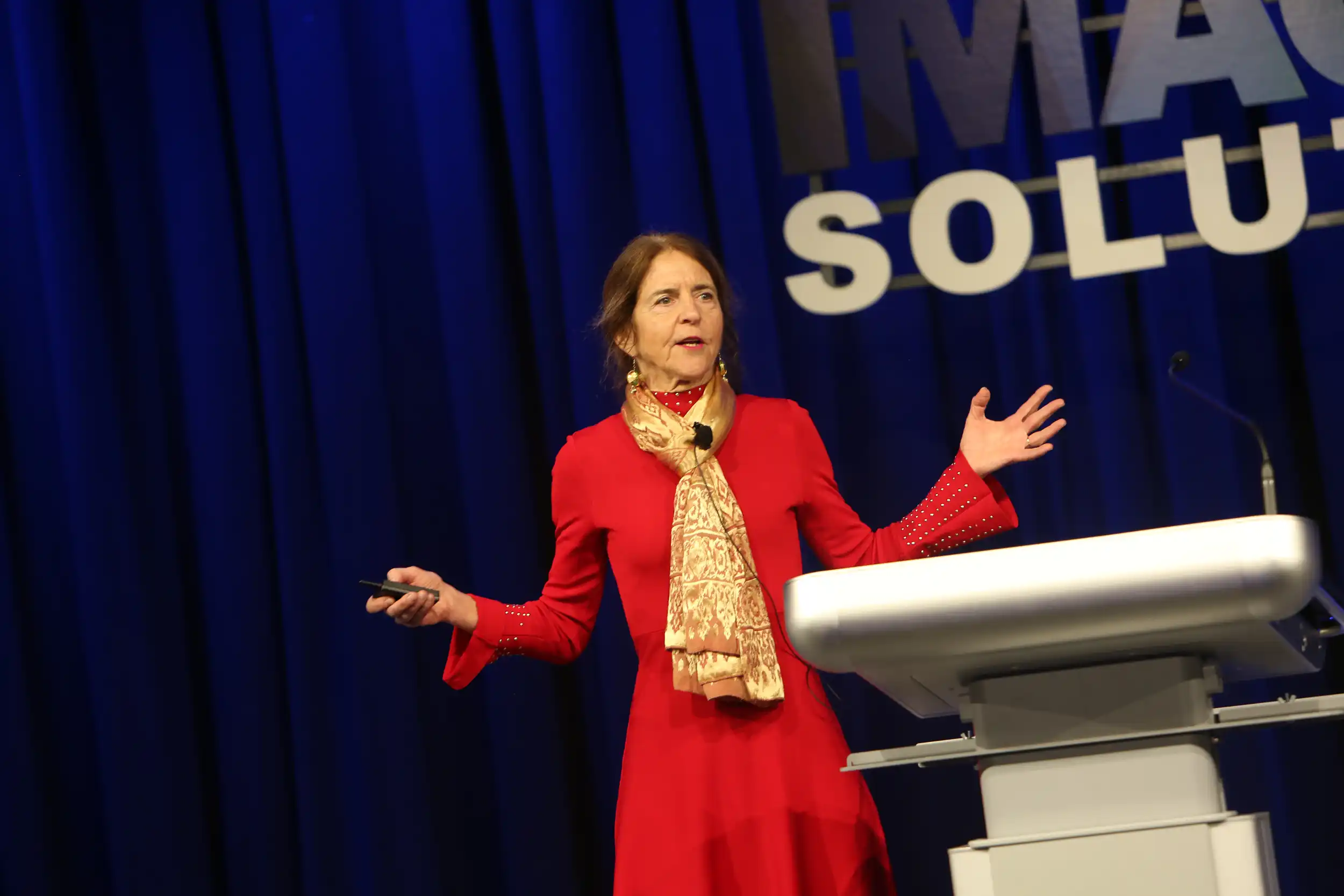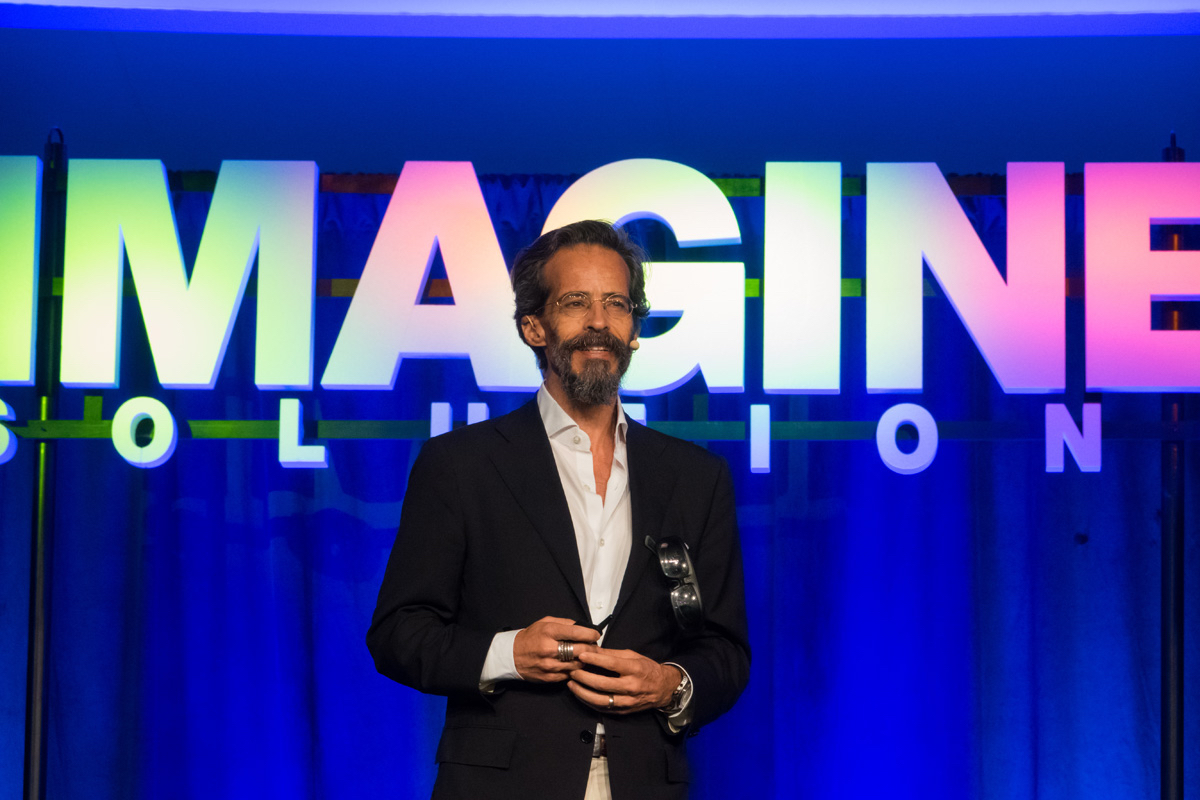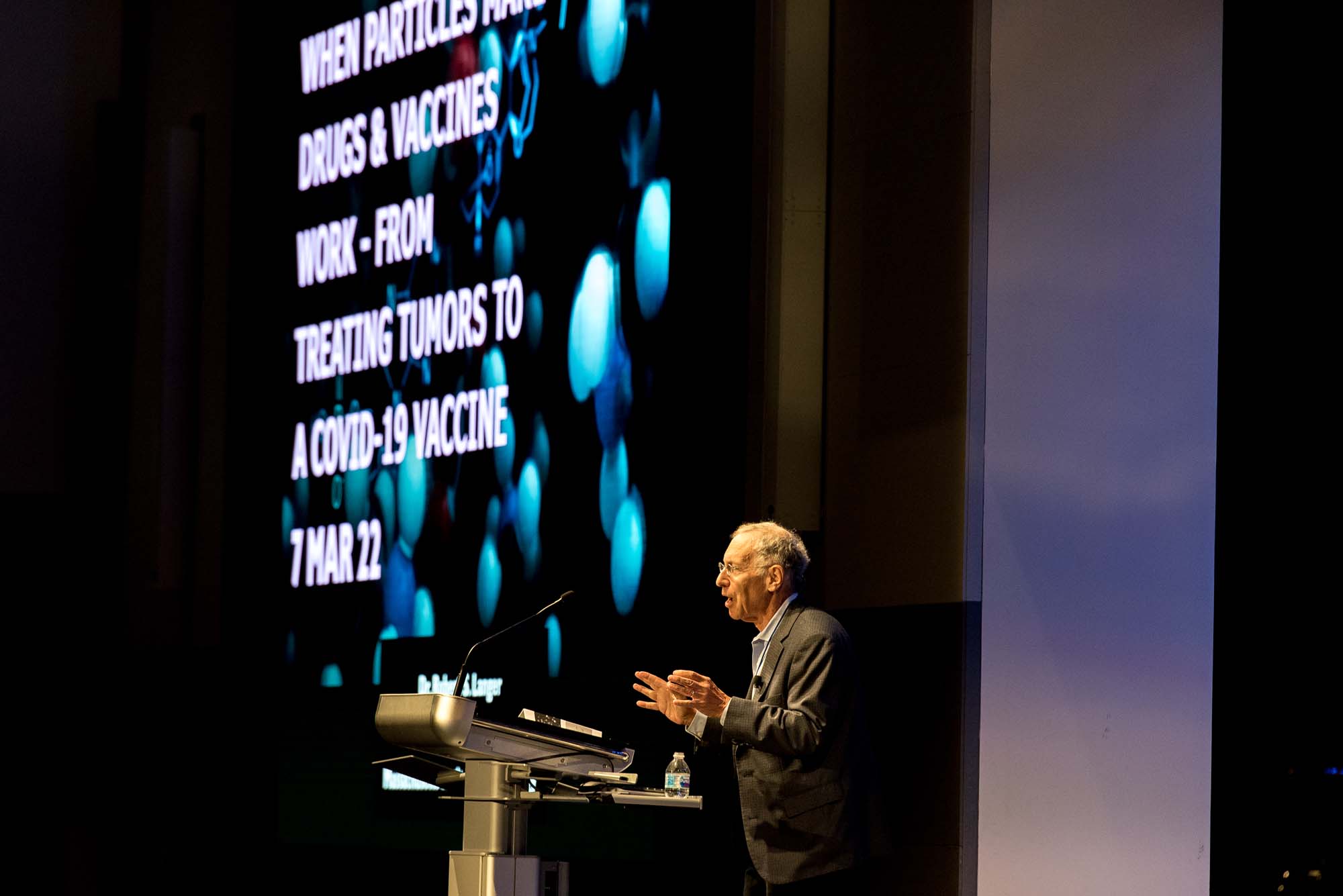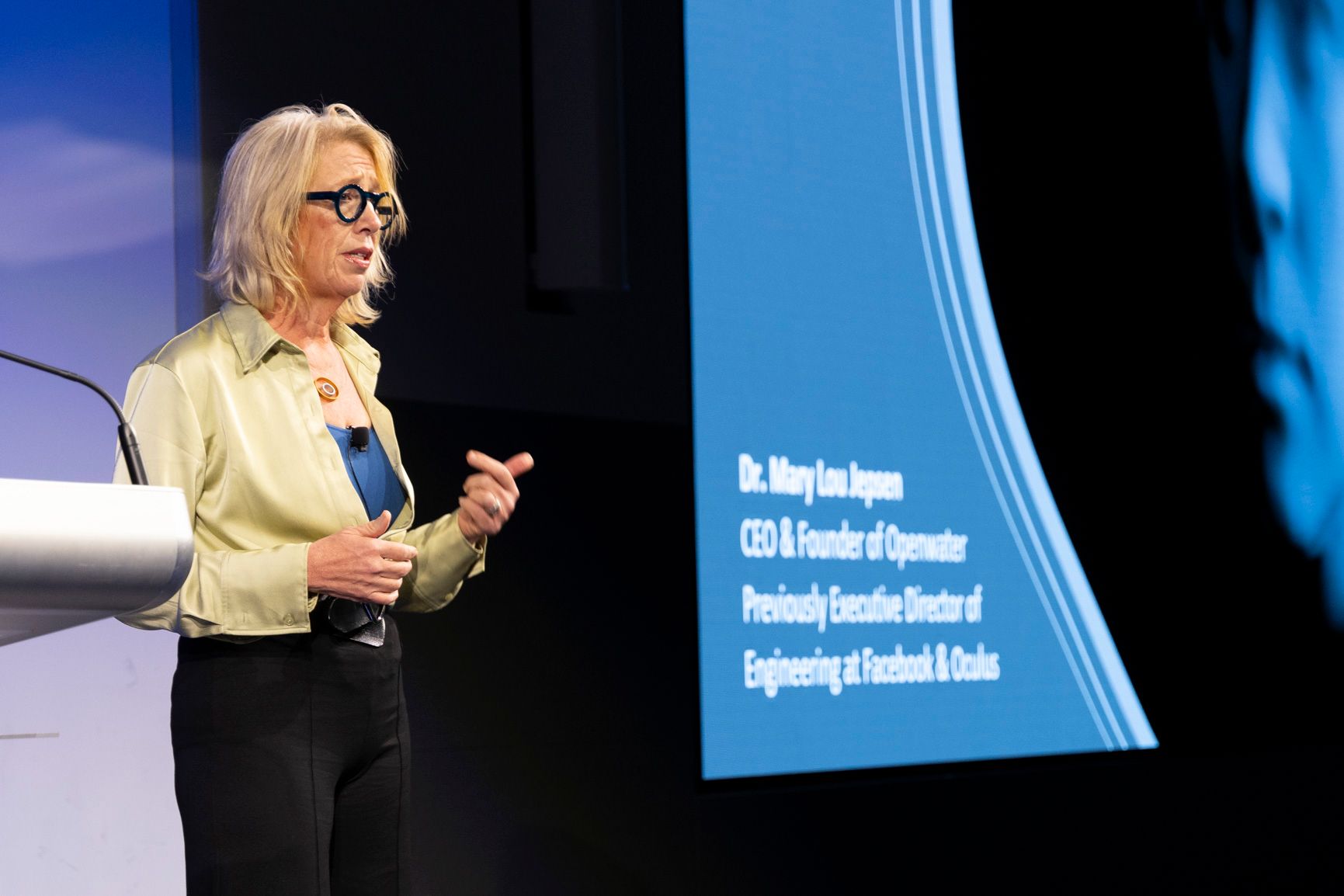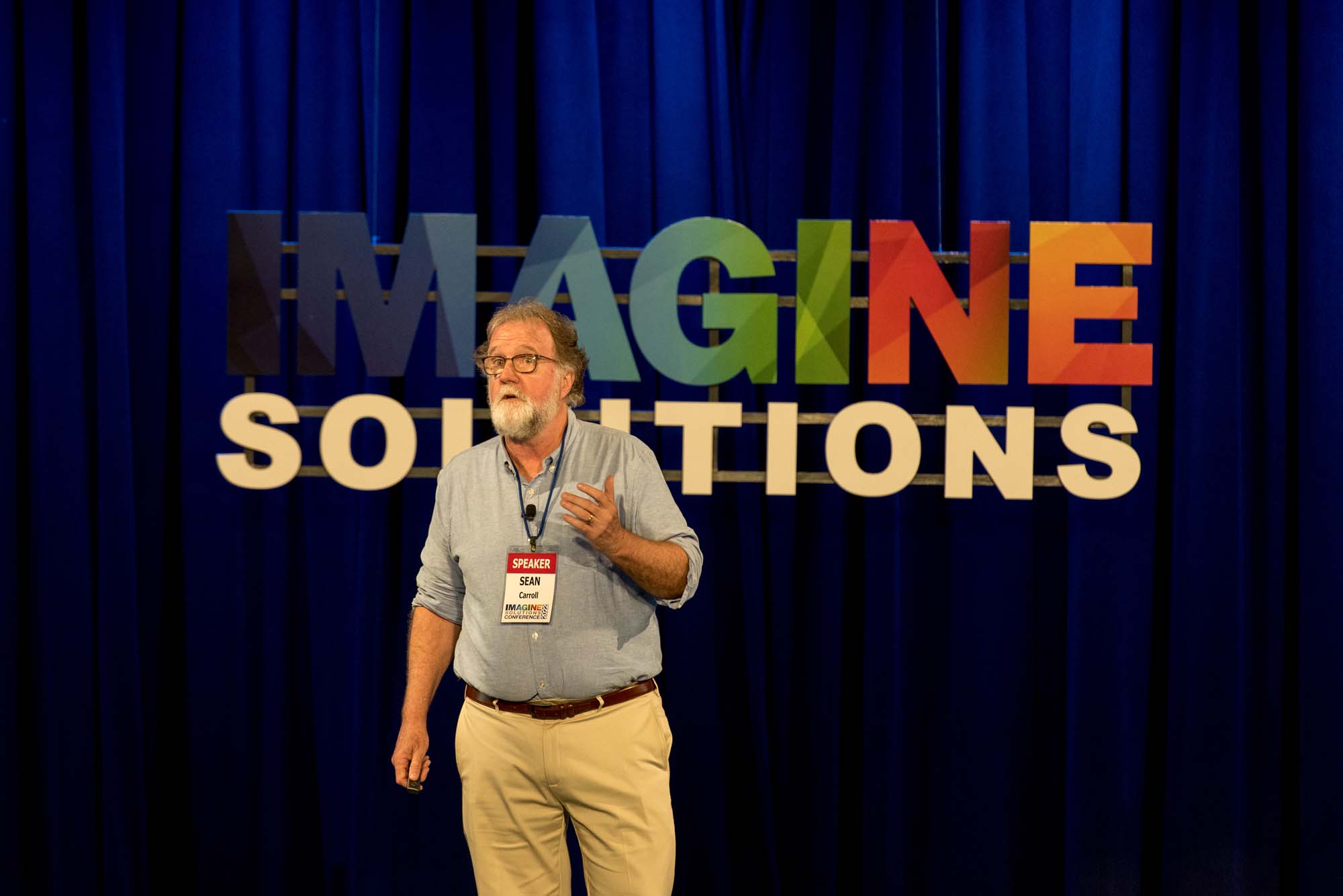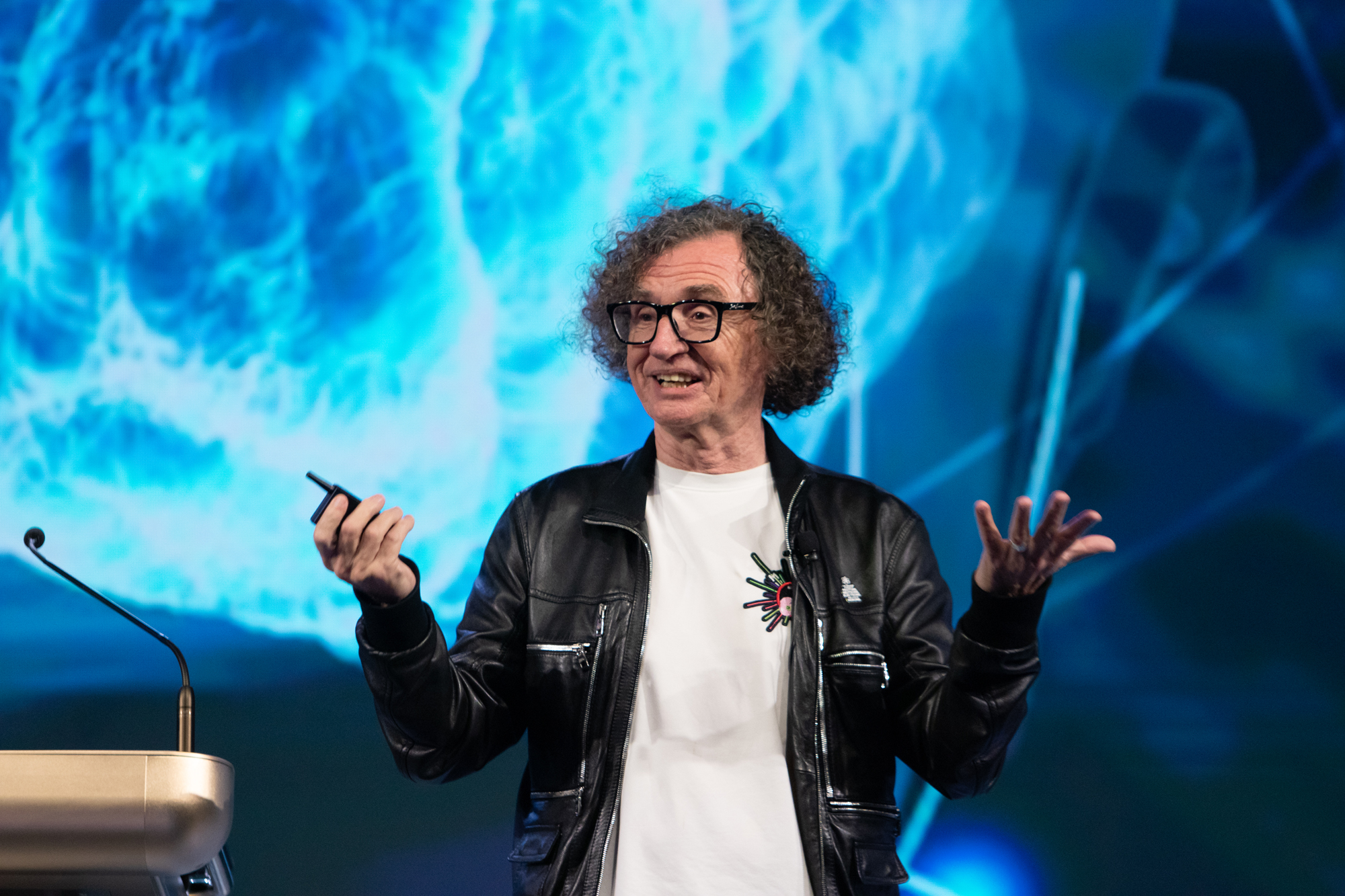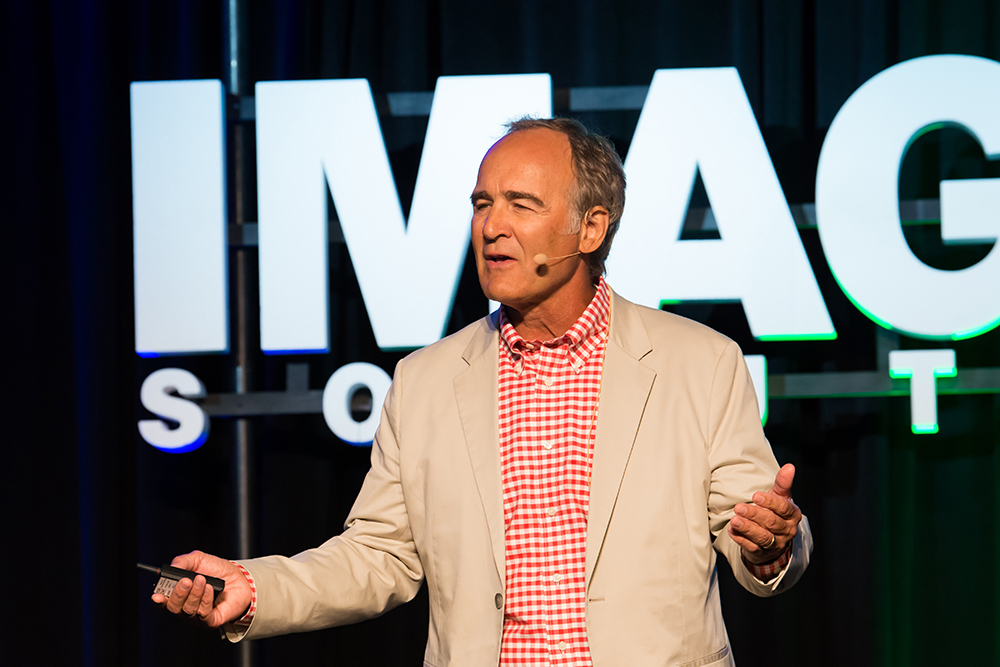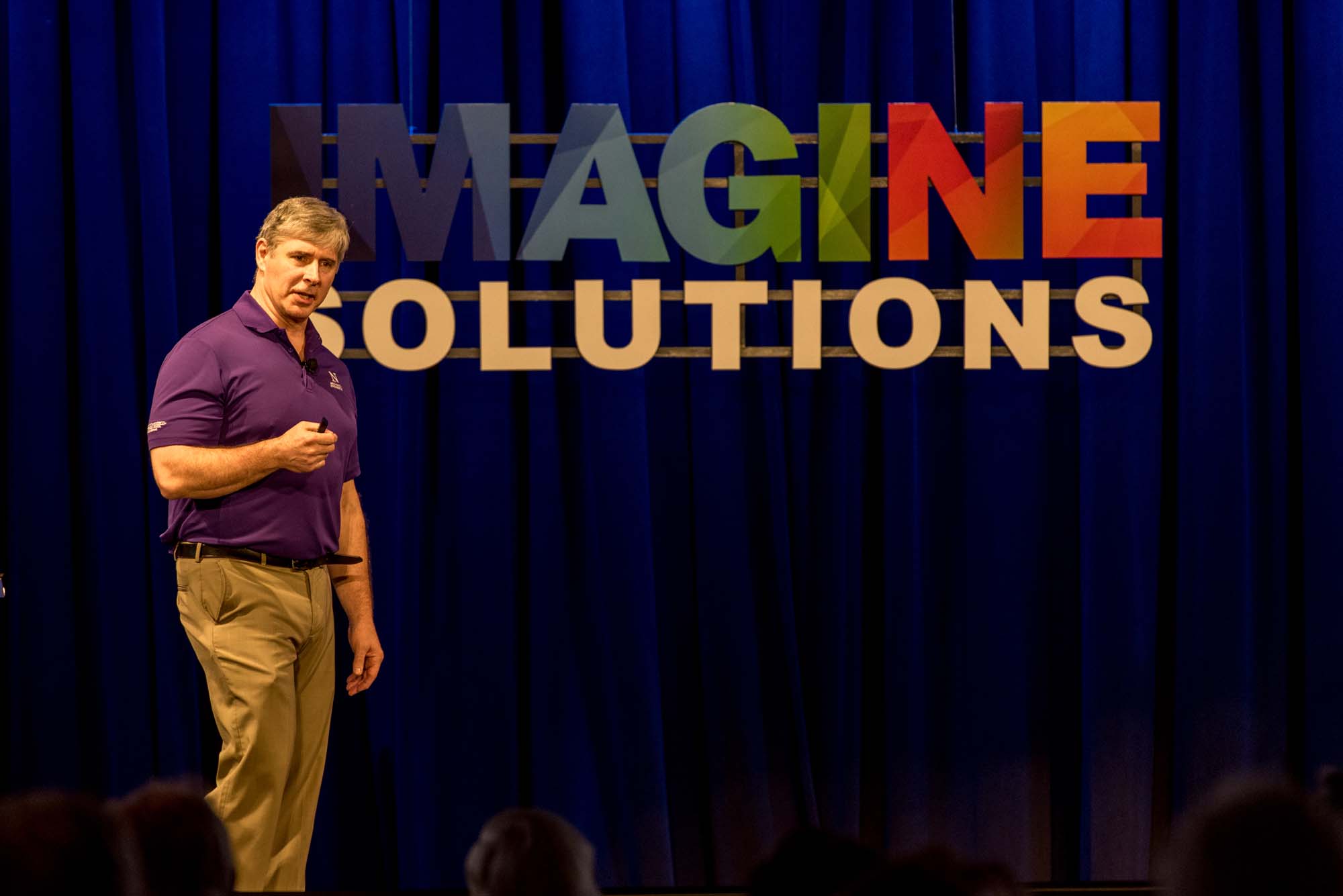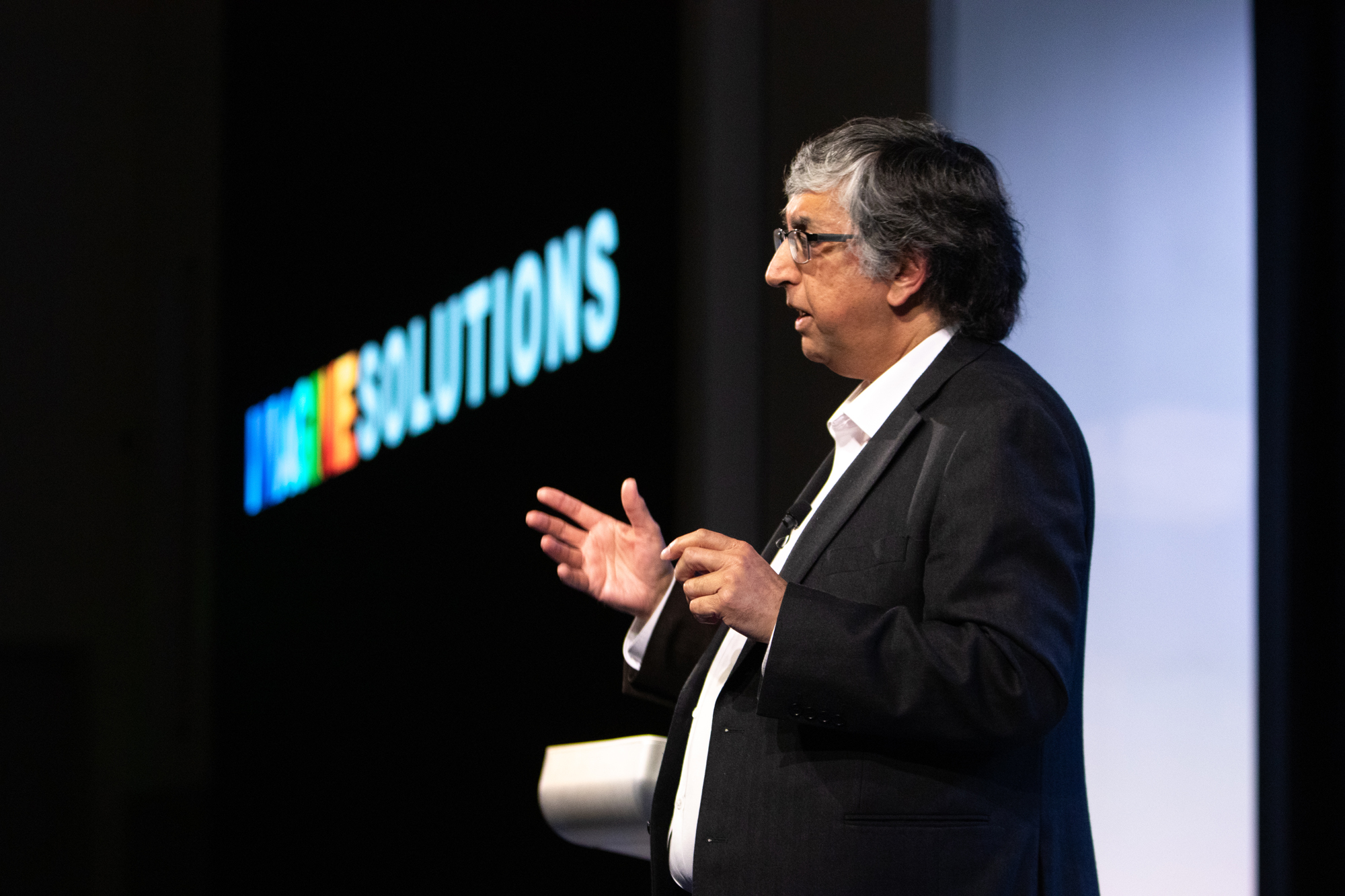A 30-Year Look at Evolving Technology
How can you imagine technology 30 years ahead? Daniel Franklin took the tactic of crowd-sourcing among subject matter experts to think about the trends and drivers of technology, to give us a sense of what could be coming, with a particular lens on the future of science and jobs. With increasingly sophisticated computing and capacity to calculate, and knowledge about gene sequencing, change is coming ever faster. The rate of disruption is likely only to increasingly speed up, expanding in waves in an exponential way. How will this impact jobs? Certainly smarter machines will play a role, but the lessons of history also offer a useful comparative context that industry will evolve and keep pace.
00.00
think back thirty years ago to the state of Technology then the trs-80 computer the Commodore computer there were things 30 years ago that of course hadn't even been imagined much less invented so now think ahead 30 years what could technology bring what could it change in our lives for better or worse what will the next 30 years hold let's find out from the editor of mega tech a collection of essays on technology in 2050 please welcome Daniel Franklin so hello and great to be with you great to be back here I it's a fantastic day here at imagine solutions I it's my third time with you and I I I know from my previous experiences just a wonderful event and I'm very happy to be back now
01.03
my task is something that as Tyler sort of intimated this would seem to be absolutely impossible how can you sink how can you begin to imagine the technology 30 years ahead here the the phone in in my pocket the iPhone was invented just 11 years ago we didn't imagine what would that really you could be carrying around really the entire knowledge of human that human beings have in your pocket and all them all the possibilities it have so how can you begin to think 30 years ahead well what I did was to think about inviting some really smart people 20 of them to give their view of the future and to start thinking about the ways the drivers of technology over the coming years so what I'm going to do today is take you through a few of their thoughts and then we're going to have a little go at one of the sort of test driving one of the
02.01
techniques for looking into the future and hopefully take a look at something that I know is on many people's minds what is the future of jobs with this great technological change so here's the first thing if you look at what is it this about the state of science today that will influence how technology develops in the coming years so here's Frank we'll check he's a Nobel Prize winning physicist and the question I put Tim today is what is it about physics that will influence technological change over the next three decades and what he says this is his central insight that you see here we have today accurate complete equations adequate to provide the foundations of nuclear physics material science chemistry and all possible forms of engineering and what he is saying is the state of physics has reached the point where you can do a lot more through these equations in essence through calc halation rather than through
03.01
experimentation and the impact of that means that it can go a lot faster you can apply very powerful computing to these problems of technology and you get development you get change a lot faster so that's physics physics has reached that state of maturity where you can proceed through a technological innovation in Vienne invention much quickly much more quickly what about biology another really important science and something that is going to in my view be the real driver of change over the coming decades this is Rob Carlson a brilliant biotech expert and an entrepreneur and he talks about the change in sequencing of DNA and how sequencing productivity has improved hyper exponentially by unguent Engineering is presently an exercise in hacking an inherited complex system without a decent instruction manual
04.01
massive investment will be applied to alleviate that ignorance over the next thirty years so you're all familiar say with Moore's law of the this incredible doubling of efficiency every 18 months or so in the computing area that has driven the computing revolution what what Rob Carson is saying is something very similar perhaps even more powerful is happening in biology the massive improvements in efficiency of sequencing DNA is going to start to provide keys to unlock great secrets of bioengineering medicine material science it's going to be very very powerful and what he's saying over the next thirty years we're not at the state of physics which has these equations we're at an earlier stage but an incredible era of a discovery ahead so a third way you can start to peer into the future is always a good idea follow the money so this is an wind blat who's a very well-known
05.03
venture capitalists in Silicon Valley and she has followed wave after wave and this is the way she describes it waves of technological investment and she says that each wave of computing has been stronger almost exponentially so experiencing a multiplier effect on the previous ones and the pace of growth of new companies coming ashore is has also accelerated dramatically so the way she says is that technological investment starts with many many companies way out to sea lots of companies going very deep but you're not aware of them yet they gradually come into Shore by the time they come into Shore and this can take ten years or so you have only a few companies that have survived but those companies tend to be very big very powerful ones that have a big influence so the latest wave as she describes it as the seventh wave of innovation in in the in the software and
06.00
in the electronics area is in AI and in quantum computing and it's going to take a while to fully mature but they're going to come ashore and come the middle of the next decade you're going to start to see new enormous and powerful companies forming and these are more powerful than the ones in the past and each wave has been has built on the previous one so what you're getting a picture through all these various perceptions is of a speeding up and a growing force of technological change now here's the final sort of little way of looking at the future that I'd like to tell you about this is Tom Standage who's a colleague at the Economist he says he has a toolkit for looking at the peering at the tech future there has three tools in it first of all lessons of history he looked to the past to see what might happen in the future so for example if you think of something that's on many people's minds at the moment driverless cars you look you might look to the previous example of great technological change in personal transportation where
07.03
you had horses being replaced by horseless carriages today's cars in effect and many of the same sorts of questions that arose would it be safe how'd you build the infrastructure what happens to all the employment of all the people looked after the horses they're going to be they're going to be out of work what what what's this transition and how fast does it happen secondly edge cases from the present basically trend watching there's this famous quotation from William Gibson science fiction writer the future is already here it's not just it's just not very evenly distributed so that means that technological change doesn't come fully formed overnight it takes a while to filter through so if you know where to look if you're smart about it you can start to see tomorrow's technology today and then finally the third an element in the toolkit science fiction why is science fiction useful well partly because it helps people to think through
08.03
often the film or the book has thought through the ethical and the moral dimension of technological change to the extent that the the techies themselves don't so what happens when the computers run our planet what happens when we colonize other planets what happens when we can manipulate genomes to the extent that you produce design of designer babies what are the what are the consequences that science fiction can help us think that through and the other reason is that a lot of technological wizards are actually science fiction fans so they start to try and put into practice in true life what they've seen in the film or read in the book so anyway let's apply this toolkit to something as I mentioned which i think is uppermost in many people's minds the world of work this kindness was a cover from The Economist a while back on the great changes in the work force that are on their way and what it means for us all so let's start by looking taking
09.02
Tom's to will get lessons from the past and we can see that actually at a certain level there's nothing new about great changes to the jobs because market and the jobs that people do because of technology this is the move from farming to to industry the agricultural share of the labor force first of all in Europe and then in the United States you could see of course it went way down because of the Industrial Revolution it shrank to you know just about 2% of the workforce today most many people shifted from farms to other occupations then more recently we've had since the Second World War really a huge shift from manufacturing to services and services have gone up from under half of what people of occupation of employment to over two-thirds here in the United States so these great shifts are nothing new it doesn't mean that it's simple or
10.01
it's not disruptive or it's not potentially very painful and there are reasons to believe that this time poses special challenges because of the nature of very very smart machines and artificial intelligence nevertheless the hit the lessons of history are going to be important to understand and to put the coming shifts in contact context and then we we will look at at these edge cases these these these trends from the present trend watching so here are just a few ideas for the types of jobs that you can already see starting to happen now that may become more important in the future so here's one bot Wranglers the world of whole world of BOTS did not exist a few years ago now it's starting to become very common you might well be speaking to a bot when you ring your airline or your you know some customer service thing a lot of work behind this a lot of employment behind this then
11.01
there's drone technicians there's the world of drones I mean you're all very familiar with military drones some of you may have owned a drone that you use for taking pictures or for personal use in between those two there's a vast world of commercial drones that is used on going to be used increasingly for everything from monitoring disaster areas some of the sorts of things that we were watching just now drones can be very handy or monitoring environmental that's used for monitoring poachers in Africa building sites which can be hard to access a lot of drones used in agricultural tech firms and so on all this is a vast area for employment didn't exist a few years back the people who fly the drones program the drones make the drones enormous economy virtual fashion designers people are going to beanie did to create make you look beautiful in the virtual world just like the real world I was curious to see the other day that there was actually a controversy over
12.01
whether it was okay to wear fur in virtual fashion as well as in real life so this stuff is very serious indoor farmers we're gonna 2050 we're going to be ten billion people on the planet we're going to need new farming techniques new types of farming is already starting to happen you have indoor farms vertical forget the farmer in Wellington boots going out into the field this is no natural light not a photon wasted and using water rather than the soil to cultivate and making vegetables very close to the cities where more and more of humanity lives and then finally another example synthetic tissue engineers in the medical sphere you can have a lot of medical conversations later on today but this is already here starting to produce almost replacement body parts and this is going to be a growing area of growing industry if you like with various pieces in this supply chain so that's just edge cases from the present and then for my
13.01
final look at the future we have the science fiction bit and I've invented a few companies of the future based on the sort of ideas that are in the emerge from the contributors to this book of the types of companies that might dominate the world in 2050 so unfortunately none of them exist so you can't invest in them so this is not an investment tip here today but here's the first one driverless cars now clearly driverless cars are going to be a very big deal but my assumption here is that it's not some new entry some tech company this is going to just sweep everything else apart because the existing expertise of the of the the famous motor companies is going to be important too so this envisage is a merger you you know that Google or alphabets driverless car division is called whammo take that and take VW one of the big car existing car companies and you get Wei mo the driverless car champion of the future
14.01
oh she farms this is the company that uses some of this very smart in technology I imagine this oh she is the Japanese for delicious so this is a company in Japan that gets concerned by the shortage of fish in the oceans and starts to produce lab-grown fish based on cell culture not on real live fish to satisfy the demand for sushi and then gets very big in all other forms of of lab-grown meat and other advanced forms of farming dkb is known as doctor knows best this is you'll hear again more about medicine but this is the company that has all the medic taps into all the medical records of everybody on the planet integrates it most effectively and gives you the best possible diagnosis interprets the data very well from the tests so you're going to be asking to see your computer not your doctor in future data bank we say often
15.01
that if coal-powered the economy in the 19th century oil in the 20th data is going to power the economy in the 21st century so the company that integrates this and and has a responsible heart keeping of your data is on to a big winner cow borg chemicals is going to be producing all sorts of new materials through biotechnology ranging through sort of microbreweries fermentation plants going through the prairies but with computers not with cows call them Cowboys wolves and then finally this one will sound familiar cyborgs fine mind and bahtman sounds like a firm of lawyers indeed is a firm of lawyers but of course it's using artificial intelligence as well as human intelligence to come to the best arguments and look up the best precedents in your cases so there you are that is mega tech that is the world a glimpse into the world of technology in 2050 and I look forward to picking up these themes and discussing it with you
16.01
during the breaks here today thank you very much indeed [Applause]

